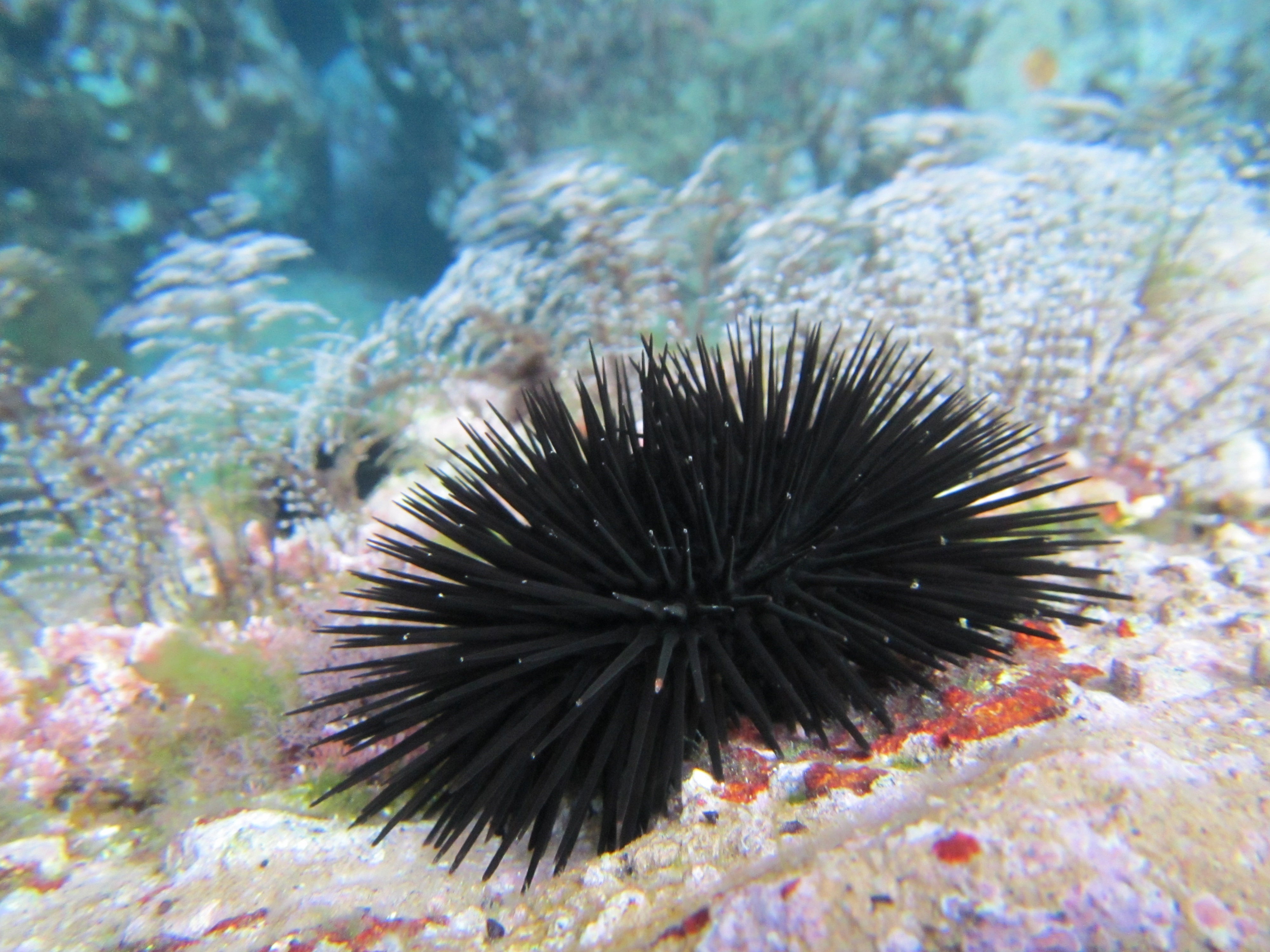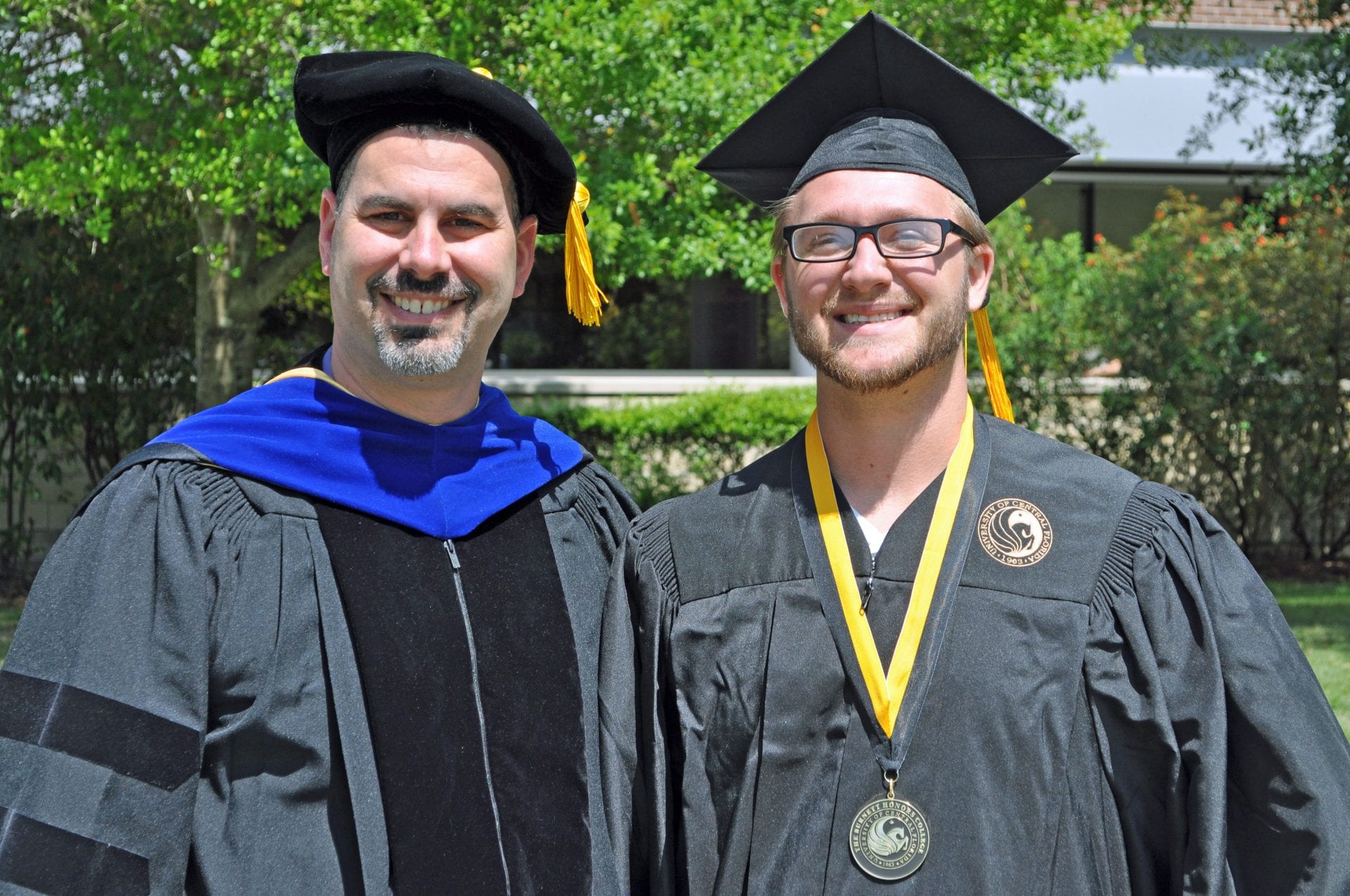UCF Team Studied Sea Urchins to Restore Reefs

A team of scientists from the University of Central Florida Department of Biology had its five year research project on endangered sea urchins published in the Bulletin of Marine Science.
The research conducted by biology undergraduate student at the time Luke Chandler, along with Associate Professor Eric Hoffman, Ph.D., and Pegasus Professor Linda Walters, Ph.D., was funded by the Florida Fish and Wildlife Conservation.
Their paper titled, Genetic Structure of Natural and Broodstock Populations of the Long-Spined Sea Urchin, Diadema Antillarum, Throughout the Florida Keys, was published in February 2017.
The team investigated genetic differentiation among a population of an endangered sea urchin throughout the Florida Keys. According to Hoffman, sea urchins have undergone a massive population decline since the 1980’s in which between 90 – 100% of them have died on reefs throughout the Caribbean.
“Urchins eat algae and once the urchins died, it enabled algae to grow on the reef and smother the corals causing coral reef decline,” Hoffman explained.

Eric Hoffman and Luke Chandler at Luke’s UCF graduation.
His student, Chandler, took an interest in the research project after taking a molecular genetics course with Hoffman.
“This specific topic appealed to me because, not only could I see the usefulness in helping restore coral ecosystems,” Chandler explained, “but I also wanted to experience exactly how to utilize genetic information for real world applications.”
Chandler’s role in this research involved extracting the DNA from the samples and amplifying them for specific genetic markers. He then analyzed the data collected and drew conclusions based on the results. Chandler began the research in the summer of 2014.
The research helped in trying to determine whether sea urchins can be transported throughout the Keys as FWC sought means to save coral reefs. They found that urchin populations exhibit similar genetic diversity and little differentiation across the Florida Keys. This discovery gave hope to the team.
“Sea urchins collected and perhaps even reared in captivity could be released throughout the Florida Key’s reef tract as a means to improve coral health,” Hoffman said.
According to Chandler, who is now pursuing his doctoral degree at the University of Florida in molecular genetics, his involvement in the project and his experience at UCF have taught him important lessons.
“Dr. Hoffman and Dr. Walters have helped me exceptionally by answering questions and critiquing my writing,” Chandler said. “Also, the graduate students in Dr. Hoffman’s lab taught me everything I know, from the wet lab to the computational techniques needed for research.”
And Chandler has advice for other students who may be considering partaking in a science research project.
“While it is a lot of work and commitment, research is easily the most life-fulfilling accomplishment I have done thus far,” Chandler expressed. “If it’s something you’re truly interested and passionate about, you can find a way to make it happen. UCF stands for opportunity.”
